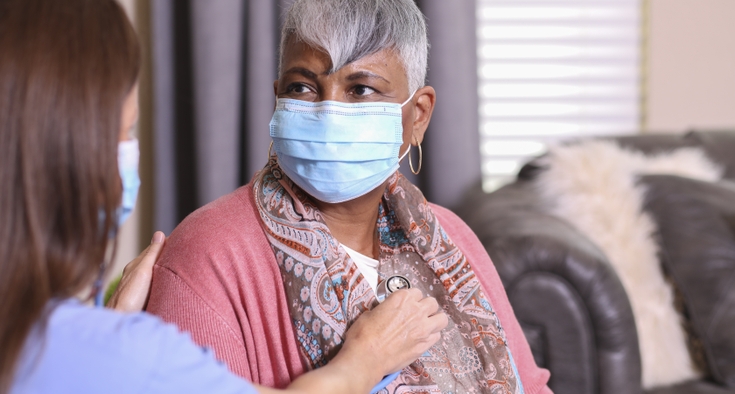COVID-19 vaccinations have begun, but the early doses for health care workers and people in nursing facilities won’t stop a probable holiday surge of new patients.

“We expect additional surge, which is why we really need the public's help,” said Dr. David Priest, Novant Health’s chief safety, quality and epidemiology officer. “The vaccine is not going to help us through a surge this holiday season. It's going to help us through surges later in 2021.”
Priest said people need to continue social distancing, wearing masks and frequently washing their hands to prevent the spread of COVID-19. He understands the urge to gather with family and friends during holidays.
“Maybe it's best to plan a holiday in the middle of 2021,” Priest said. “As hard as that is, that's a sacrifice we need to make to protect our communities this year.”
Priest answered several questions about the COVID-19 vaccinations:
What about any effects of receiving the vaccination?
We know in clinical trials that some participants experienced what we're calling ‘expected’ effects and not ‘side’ effects. When you get a vaccine and your immune system responds, we expect certain things to occur, including having a sore arm, maybe some malaise and fatigue, and occasionally low-grade fever. Those lasted only one or two days. We think people are going to have expected effects from this vaccine like they do to other vaccines, and it just shows your immune systems reacting and doing what we want it to do.
With COVID-19 hospitalizations increasing, should people avoid going to the emergency room?
People should absolutely seek care when they need it, at the appropriate venue. If you have a medical emergency or a trauma, you should get care at your local emergency department. Don't delay, because we have seen throughout the pandemic individuals with other chronic medical problems who had issues because they didn't seek medical care in a timely fashion.
The Pfizer vaccine is kept at a subzero temperature. Will it feel cold when you receive the injection?
The vaccine will be thawed ( in powder form and place in a solution, which is common with vaccines), so it will be cool, but not cold. That's more about how fragile the mRNA (a type of vaccine) is and the need to protect it.
What factors will determine when we move into the next phase of vaccine administration?
The phases are general guidelines. We're not going to split hairs in between the phases. This is too massive of an operation to start debating things on one individual. There is going to be some cross-pollination across the phases. No matter what, this is going to be a little messy on a national level, a state level and a local level. It’s not going to be perfect. I hope I have the problem where I have too many people wanting vaccine and I have to wait for an allotment.
If someone has already tested positive for COVID-19 and recovered, should they consider getting a vaccine?
Yes. If it's been more than 14 days since they had COVID-19, they're a candidate for vaccination. We know that people will get vaccine who had COVID-19 and didn't realize it. We think because of the potential for waning immunity, meaning if you had COVID-19, over time, you may lose those antibodies, it's worth being vaccinated.
What about people who are prone to allergic reactions, but are at high risk and needed the vaccine?
The Centers for Disease Control and Prevention’s Advisory Committee for Immunization Practices put out their guidance over the weekend. Basically, what they're saying is if you're someone who's had a severe allergic reaction to a vaccine of any kind, you should wait. I think we'll know more as we get into these first phases. It's always worth talking to your physician about that, and getting guidance from them.







